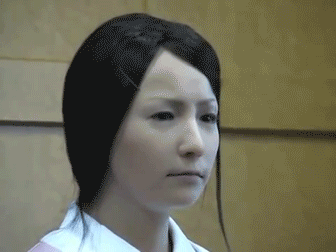Even at his most outlandish, George Saunders never seems to me to be writing about the future but about life right now. What is a quiet nightmare The Semplica Girls Diaries about if not growing divide between the haves and have-nots as we shift from the Industrial Revolution to the Digital one, the way technocracy removes the friction from our lives and disappears the “downsized” from our minds?
In a New York Times Magazine conversation, Saunders and Jennifer Egan discuss the futuristic in fiction. An excerpt:
George Saunders:
One topic I’d like to someday take on in a work of “futuristic” fiction is our increasing materialism — we are coming to believe that our minds are entirely sufficient to understand the universe in its entirety. This means a shrinking respect for mystery — religion vanishing as a meaningful part of our lives (or being used, in its fundamentalist forms, to beat back mystery, rather than engage it); an increasing acceptance that if something is “effective” (profitable, stockholder-enhancing), then that answers all questions of its morality. This insistence on the literal and provable and data-based and pragmatic leaves us, I think, only partly human. What will the future look like, given that premise? Bleak, I’d say. But interesting.
I’m actually working on a novel based in the past now, and to me, there are some parallels between writing about the future and writing about the past. Neither interests me at all, if the intention is just to “get it right.” It’s nearly impossible to recreate a past mind-set, and also, why bother? That mind-set already existed, if you see what I mean. The goal of a work of fiction is, in my view, to say something, about how life is for us, not at any particular historical moment (past or present or future) but at every single moment. By necessity, we have to choose some precise time to depict, but we wouldn’t want to confuse ourselves by thinking that the “correct depiction” of that time was the goal.
Jennifer Egan:
I’m curious what period are you writing about, and what led you to do that?
George Saunders:
Yeah, I’m going to be a little secretive about it, as sort of a mojo-protection move. … but it’s the 19th century. And the motivation for doing it was just this really cool, sad story I heard around 1998. For years, I was playing with that idea in different modes and screwing it up, and then one day I had a little insight into how I might do it. It’s also got a supernatural element. So, weirdly, although it’s ostensibly “historical,” it actually feels more like a sci-fi story than anything I’ve ever done before. There’s a heavy element of world-building — figuring out the internal rules of the place and so on.•
Tags: George Saunders, Jennifer Egan

